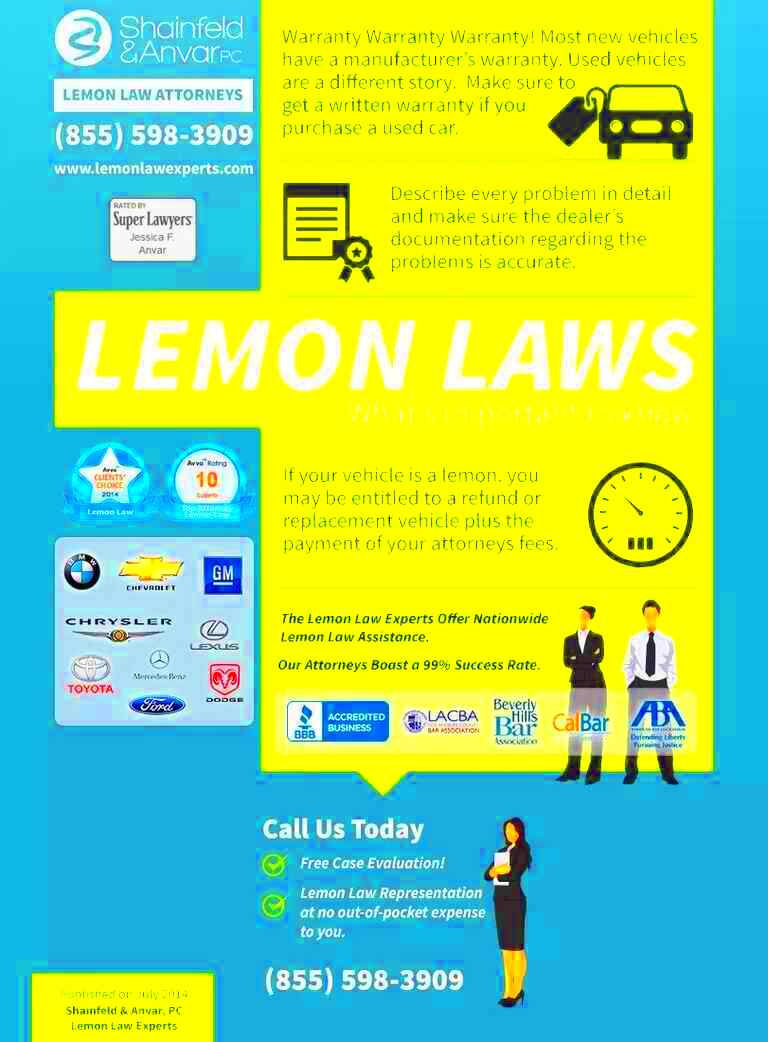Key Facts About Lemon Law in Colorado
If you’re a Colorado resident and have purchased a new vehicle that has persistent problems, you might benefit from understanding the Lemon Law. This law is designed to protect consumers like you from defective vehicles, commonly referred to as “lemons.” In simple terms, if your new car is constantly breaking down or has major flaws that the dealer can’t fix, the Lemon Law can help you get a refund or a replacement. Let’s dive deeper into what this law entails and how it affects you as a consumer.
Understanding Lemon Law Definitions

The Lemon Law in Colorado refers to legal protections for consumers who buy defective vehicles. Here are some key definitions to help you understand:
- Lemon: A vehicle that has a significant defect that affects its use, value, or safety and cannot be repaired after a reasonable number of attempts.
- Manufacturer: The company that produces the vehicle, responsible for ensuring its quality.
- Defect: Any issue that hinders the vehicle’s operation or safety.
Essentially, if your vehicle has defects that fall under these definitions, you may have grounds for a Lemon Law claim. This law is in place to ensure that consumers are not stuck with faulty vehicles and have recourse for resolution.
Eligibility Criteria for Lemon Law Claims

Not every vehicle issue qualifies for a Lemon Law claim. Here are the main eligibility criteria you should consider:
- Time Frame: The vehicle must have been purchased within the last 1 year.
- Repair Attempts: You must have given the manufacturer or dealer at least four chances to fix the defect.
- Serious Defect: The defect must substantially impair the vehicle’s use, value, or safety.
- Documentation: Keep detailed records of repairs and communications regarding the issues.
If you meet these criteria, you may be eligible for a refund, replacement vehicle, or cash compensation. Knowing these requirements can help you decide whether to pursue a Lemon Law claim, protecting your rights as a consumer.
Steps to File a Lemon Law Claim

If you believe your vehicle qualifies as a lemon, taking the right steps to file a claim is crucial. Here’s a straightforward guide to help you navigate the process:
- Gather Documentation: Start by collecting all relevant paperwork. This includes your purchase agreement, repair orders, and any correspondence with the dealer or manufacturer.
- Record Details of the Defect: Document every issue with your vehicle. Note the dates of repairs, the nature of the defects, and how they affect your vehicle’s use.
- Contact the Manufacturer: Reach out to the manufacturer to report the defect. It’s essential to inform them of the ongoing issues and the repairs you’ve attempted.
- Send a Demand Letter: If the manufacturer fails to resolve the issue, consider sending a demand letter. This letter should outline your situation, the defects, and your request for a refund or replacement.
- File a Claim: If necessary, file a formal Lemon Law claim with the Colorado Department of Law or consider pursuing arbitration or court action if your issue remains unresolved.
Following these steps can increase your chances of a successful outcome in your Lemon Law claim, ensuring that your rights are protected as a consumer.
Important Lemon Law Rights for Consumers
As a consumer under the Lemon Law in Colorado, you have specific rights designed to protect you from defective vehicles. Here are some important rights to keep in mind:
- Right to a Refund: If your vehicle is classified as a lemon, you are entitled to a full refund of the purchase price, including taxes and fees.
- Right to a Replacement: Instead of a refund, you may choose to receive a comparable replacement vehicle if that suits you better.
- Right to Legal Representation: You have the right to seek legal help to navigate the Lemon Law process and represent your interests.
- Right to Know: You should be informed about your rights and the procedures involved in filing a Lemon Law claim.
Understanding these rights is essential for every consumer. They ensure that you are not left dealing with a faulty vehicle and that you have clear options for resolution.
Common Misconceptions About Lemon Law
There are several myths surrounding Lemon Law that can confuse consumers. Let’s clarify some of the most common misconceptions:
- Lemon Law Only Applies to New Cars: Many people think this law only covers new vehicles, but it can also apply to used cars that are still under warranty.
- You Must Sue to Get Results: While lawsuits are an option, many Lemon Law claims are resolved through negotiations or arbitration without the need for court action.
- All Vehicle Issues Qualify: Not every problem qualifies as a lemon. Minor issues or those that don’t significantly affect the vehicle’s use or safety typically do not meet the criteria.
- You Need a Lawyer to File a Claim: While having legal representation can be beneficial, you can also file a claim on your own if you feel comfortable doing so.
By understanding the truth behind these misconceptions, you can make informed decisions about your rights and options as a consumer dealing with a defective vehicle.
How Lemon Law Affects Vehicle Resale Value
When it comes to selling a vehicle that has been deemed a lemon, understanding its impact on resale value is crucial. If you’ve gone through the Lemon Law process, potential buyers may hesitate due to the vehicle’s history. Here’s how the Lemon Law can affect your vehicle’s resale value:
- Disclosure Requirements: Many states require you to disclose any history of lemon law claims when selling a vehicle. This transparency can lead to lower offers from buyers who may be wary of past defects.
- Perceived Value: Even if a vehicle has been repaired or replaced, buyers might perceive it as less reliable. This perception can significantly lower the resale value compared to similar vehicles without a lemon history.
- Market Demand: Some buyers actively avoid vehicles with a lemon law history, limiting your market. Fewer interested buyers mean you may need to lower your asking price to attract potential purchasers.
- Legal Documentation: While having legal documentation can provide assurance about repairs, it might not fully mitigate buyer concerns regarding the vehicle’s reliability.
Ultimately, while the Lemon Law provides protection, it can also pose challenges when it comes to reselling your vehicle. Being upfront about the history and presenting any documentation of repairs can help reassure potential buyers.
Frequently Asked Questions About Lemon Law
As consumers dive into the Lemon Law, many common questions arise. Here are some frequently asked questions to help clarify any uncertainties:
- What qualifies as a lemon? A lemon is typically a vehicle that has significant defects affecting its use or safety and has undergone multiple unsuccessful repair attempts.
- How long do I have to file a claim? In Colorado, you generally have up to 1 year from the date of purchase to file a Lemon Law claim.
- Can I still file a claim if my warranty has expired? Yes, as long as the issues occurred during the warranty period, you can file a claim even if the warranty has expired.
- Is there a cost to file a Lemon Law claim? While filing a claim can sometimes involve legal fees, many consumers pursue claims without incurring significant costs.
These FAQs can help guide you through the Lemon Law process, ensuring you have the necessary information to protect your rights as a consumer.
Conclusion and Key Takeaways
Understanding the Lemon Law in Colorado is vital for any consumer who has purchased a defective vehicle. Here are the key takeaways:
- Know Your Rights: Familiarize yourself with your rights under the Lemon Law, including your entitlement to refunds or replacements.
- Document Everything: Keep detailed records of all repairs, communications, and issues with your vehicle. This documentation is essential for filing a successful claim.
- Act Promptly: If you believe your vehicle is a lemon, take action quickly. There are deadlines for filing claims that you should be aware of.
- Seek Help if Needed: Don’t hesitate to consult a legal professional if you have questions or need assistance navigating the claims process.
By understanding and utilizing the Lemon Law, you can protect yourself and ensure that you are not left dealing with a defective vehicle. Stay informed, document your experiences, and don’t hesitate to seek help when needed.


